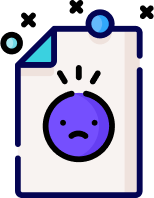By learning
full-stack development, you can become a versatile developer who is capable of
working on all aspects of web development. This can open up many opportunities
for you in the tech industry and help you build a successful career.
Course
description
Module 1: Introduction to Full Stack Development
- Overview
of Full Stack Development
- Definition
and role of a Full Stack Developer
- Importance
in modern web development
- Understanding
Front-end Development
- HTML,
CSS, and JavaScript basics
- Introduction
to responsive design
- Browser
Developer Tools
- Introduction
to Back-end Development
- Overview
of server-side languages (e.g., Node.js, Python, Ruby)
- Basics
of server-side scripting
- Introduction
to databases (SQL and NoSQL)
Module 2: Front-end Development
- Advanced
HTML and CSS
- HTML5
and CSS3 features
- CSS
preprocessors (e.g., Sass, LESS)
- JavaScript
Fundamentals
- Advanced
JavaScript concepts
- DOM
Manipulation and Events
- Front-end
Frameworks and Libraries
- Introduction
to popular frameworks (e.g., React, Angular, Vue.js)
- Building
dynamic user interfaces
- Responsive
Design and Cross-Browser Compatibility
- Mobile-first
design principles
- Cross-browser
testing and debugging
Module 3: Back-end Development
- Server-Side
Programming
- Introduction
to server-side languages (e.g., Node.js, Python, Ruby)
- Building
and handling HTTP requests
- Database
Management
- Relational
databases (e.g., MySQL, PostgreSQL)
- NoSQL
databases (e.g., MongoDB)
- RESTful
API Development
- Design
principles for RESTful APIs
- Building
and consuming APIs
- Authentication
and Authorization
- User
authentication strategies
- Role-based
access control
Module 4: Version Control and Collaboration
- Version
Control with Git
- Introduction
to Git and GitHub
- Branching,
merging, and pull requests
- Collaborative
Development
- Working
with development teams
- Code
reviews and best practices
Module 5: DevOps and Deployment
- Continuous
Integration and Deployment (CI/CD)
- Introduction
to CI/CD pipelines
- Automating
testing and deployment
- Containerization
and Docker
- Basics
of containerization
- Docker
and container orchestration
Module 6: Cloud Technologies
- Introduction
to Cloud Computing
- Overview
of cloud platforms (e.g., AWS, Azure, Google Cloud)
- Deploying
applications to the cloud
- Serverless
Architecture
- Basics
of serverless computing
- Implementing
serverless functions
Module 7: Advanced Topics and Emerging Technologies
- Progressive
Web Apps (PWAs)
- Building
offline-capable web applications
- Enhancing
user experiences with PWAs
- GraphQL
- Understanding
GraphQL
- Integrating
GraphQL into applications
- Real-Time
Web Development
- WebSockets
and real-time communication
- Implementing
real-time features
Module 8: Final Project and Capstone
- Capstone
Project
- Design
and implement a full-stack application
- Showcase
learned skills and technologies
- Project
Presentation and Feedback
- Presenting
the final project to peers and instructors
- Receiving
constructive feedback
Additional Considerations:
- Mentorship
and Support
- Provide
mentorship sessions and support for students throughout the course.
- Portfolio
Development
- Guide
students in creating a portfolio showcasing their projects and skills.
- Soft
Skills and Professional Development
- Incorporate
sessions on soft skills, teamwork, and effective communication.
- Career
Guidance
- Offer
career guidance, resume workshops, and interview preparation.



